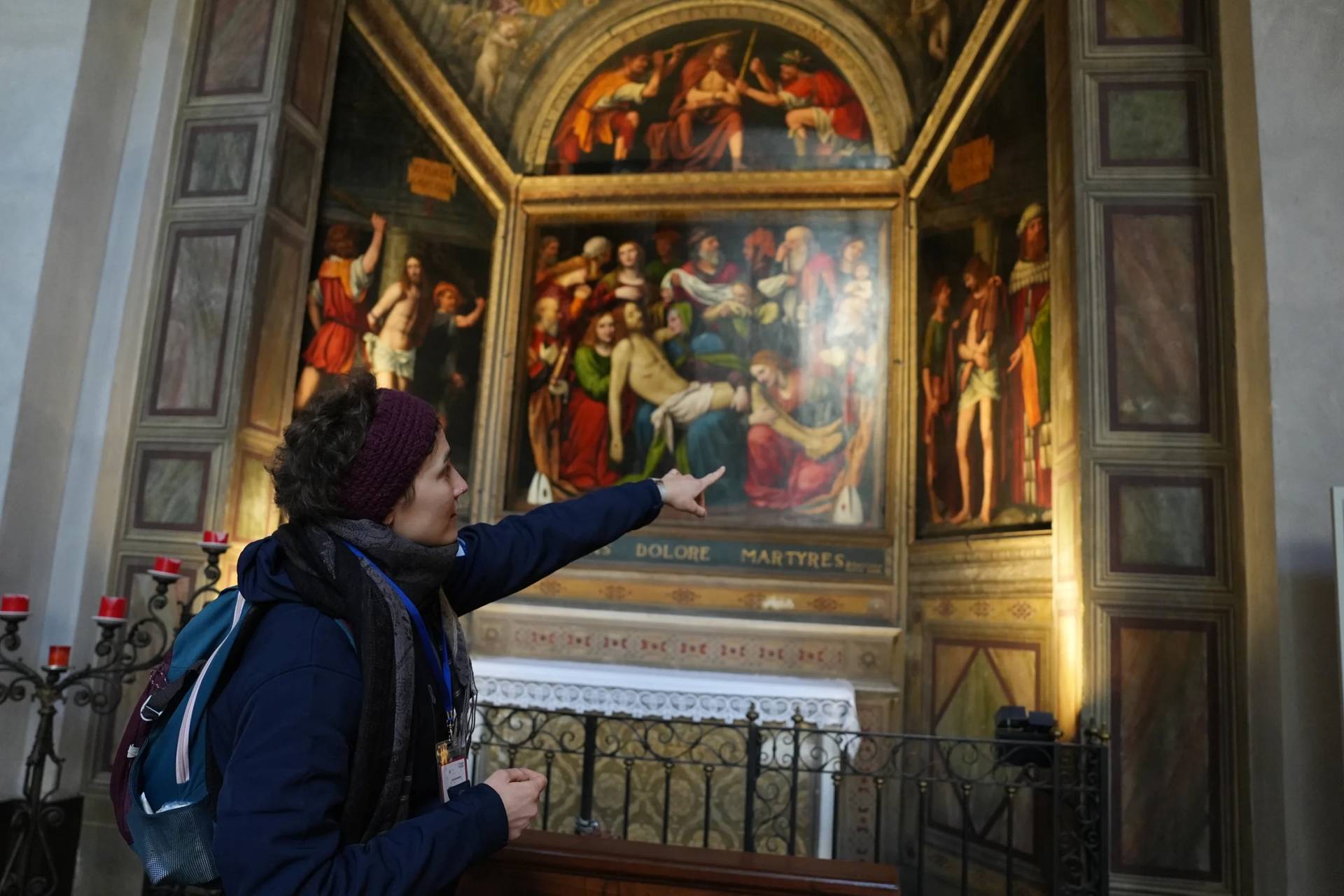ROME – Italian lay monk Enzo Bianchi, founder of a popular ecumenical monastery who was exiled from the community as a result of internal tensions, has announced the formation of a new spiritual center in northern Italy.
In a post on his personal blog announcing the establishment of the center, called “Casa della Madia,” Bianchi said he decided to create the center to “live the last years of my life in peace,” after being forced out of the Bose Monastery last year.
Bianchi left Bose in June 2021, at the culmination of a two-year back-and-forth between the Vatican and the monastery. He was asked to leave following a Vatican investigation into the internal life of the community in 2019.
Bianchi, a lay monk, founded the Bose Monastery in the 1960s as an ecumenical community of men and women belonging to different Christian confessions, but who live a common life of prayer, poverty, celibacy, and obedience to the Gospel.
The community was canonically approved in 2000, and was supported by Popes John Paul II, Benedict XVI, and Francis.
During his time leading the community, Bianchi rose in ecclesial prestige and became a widely recognized figure, and was celebrated most visibly by John Paul II and Benedict XVI.
In 2003, John Paul II named Bianchi as part of the delegation that returned the celebrated icon of Our Lady of Kazan to the patriarch of Moscow in his capacity as a member of the executive board of the Catholic Committee for the Cultural Cooperation of the Pontifical Council for Promoting Christian Unity.
Bianchi also attended high-profile Vatican meetings in 2008 and in 2012, and in 2018 Pope Francis named him a consultor of the Vatican’s office for Christian Unity.
In 2017, Bianchi stepped down as the leader of the Bose Monastery and new leadership was elected. However, the transition was rocky, prompting internal complaints that led the Vatican to open an investigation into the internal life of the community in 2019 over allegations of abuses of power and authority by Bianchi, who was accused by members of undermining the community’s new leaders.
When the inquiry concluded in May 2020, Vatican Secretary of State Cardinal Pietro Parolin ordered Bianchi and three other members of the community to move off monastery grounds in an effort to reestablish a peaceful and harmonious internal environment.
Bianchi initially promised to leave, yet made no move to do so. He remained on community grounds for over a year before taking his leave, saying the delay was because he could not find adequate or affordable housing.
Prior to Bianchi’s departure, in a bid to end the standoff, the monastery in February 2021, announced that it would close its community house in Cellole and set it aside for Bianchi’s use and any other community members who wished to join him.
Under that arrangement, Bianchi was asked to leave by the start of Lent, however, by the time Ash Wednesday arrived, he remained.
Pope Francis then intervened directly in the impasse, organizing a March 4, 2021 meeting with the pontifical delegate to Bose, Father Amedeo Cencini, and the current prior, Father Luciano Manicardi, the day before departing for his historic visit to Iraq.
In a lengthy post to his personal blog two days later, Bianchi defended himself, saying he was unaware of certain conditions attached to the Cellole arrangement when he initially agreed to it, such as a requirement that community members who moved with him would be stripped of their monastic status.
Pope Francis then sent a letter of support to members of the Bose Monastery, telling them not to be discouraged and to stay true to their ecumenical vocation.
Bianchi finally left in June 2021, after spending 55 years living a monastic life in Bose. He moved to the outskirts of Turin.
In his blog post announcing the “Casa della Madia,” Bianchi said the center is a farmhouse located in the town of Albiano, in the northern Italian province of Trento.
With the help of some friends and a 10-year mortgage, Bianchi was able to purchase the house and is currently renovating it in order “to make it habitable.”
Once the renovations are complete, “this farmhouse will be a house that will welcome those who want to live with me, friends and guests who are looking for a place of silence, dialogue, and hospitality,” Bianchi said.
Bianchi said the new center is not an attempt to recreate the Bose Monastery, nor is he trying to found a new religious community.
“I just want to live as a cenobite monk and not a hermit, as I have always lived,” he said. “As we walk along, we will see what the Lord has in store for us and what the Holy Spirit will suggest to us.”
The farmhouse, he said, “will certainly be a place of prayer, of encounter, of fraternity and sorority, and of the exchange of words, affections, and hopes.”
Bianchi has already launched a website where donors can go to support the project by contributing to the mortgage, the renovations, and the accommodation for whatever guests might come to stay there.
Follow Elise Ann Allen on Twitter: @eliseannallen













